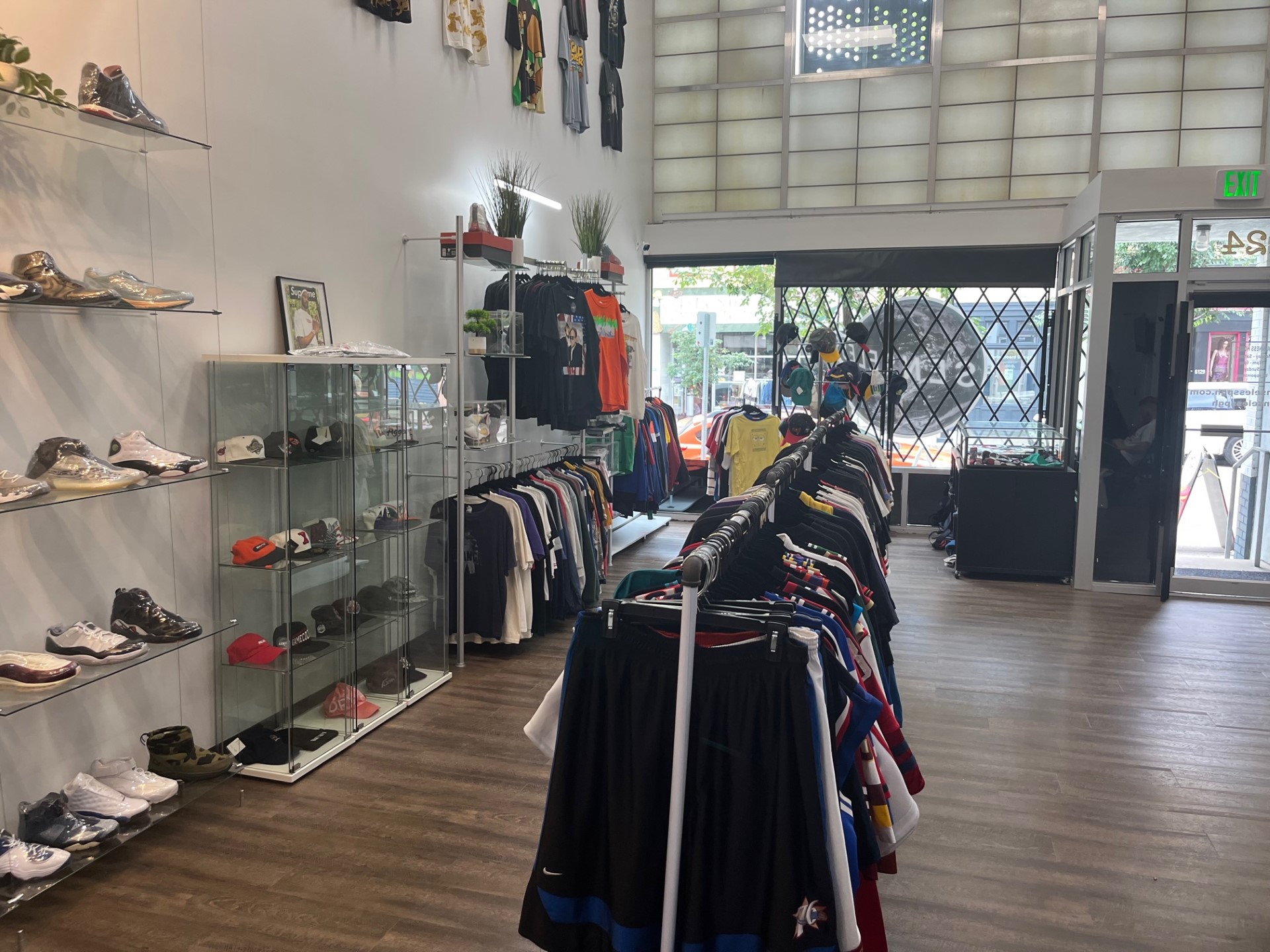

Story and photos by Tribune-Review
Aug. 17, 2023
Pittsburgh is a melting pot of personalities and possibilities.
Politicians and professional athletes might often be front and center, but it’s the everyday citizen who makes the region what it is.
From the North Shore to the South Side, from an operating room to an operating budget, myriad individuals converge to keep this region moving forward.
Innovative, imaginative and inspiring, here are some of the unsung individuals of the city.
King of the Pittsburgh skyline, the U.S. Steel Tower symbolizes the city’s industrial past and medical future.
Although most associate it with its namesake or that of UPMC, which has its large letters adorned at the top of the 64-story structure, a community of laborers helps keep the building buzzing.
Creativity and ingenuity are necessary tools when it comes to maintaining daily care of the 841-foot skyscraper that opened in 1971.

George Chytil, project manager of housekeeping, oversees a team that begins its day at 6:30 a.m. and concludes at 2:30 a.m.
In the early-morning hours, a groundskeeper checks the plaza outside the building, two window-washers clean 187 windows a day — there are 11,000 windows in all — and a lamp tender replaces faulty light bulbs.
At 7:30 a.m. one employee deals with freight (mainly mail), and at 4 p.m. housekeeping comes in to strip and wax the floors.
“It takes the best to keep these floors sparkling,” Zachary Johnston, director of engineering, said with a smile.
For work crews starting before sunrise, the iconic view of Pittsburgh from the top of the U.S. Steel Tower never ceases to take their breath away.
For some, working at the Steel Tower is a generational effort.
Johnston’s great-grandfather worked for Turner Construction and helped build the tower.
Operating engineer Kris Heidkamp’s father worked in the Steel Tower for 38 years, serving as chief engineer for a decade. Heidkamp said he used to love visiting the building with his dad.
“I still have my dad’s uniform,” he said. “It’s hanging in my office. That thing is going with me.”
— Story by Anna Mares
Dr. Stephen Bailey adjusts the light above him and carefully makes his first incision.
An hour of preparation has come to this. Bailey, chair of Allegheny Health Network Cardiovascular Institute, is performing open-heart, triple-bypass surgery.
Open heart surgery is performed once or twice a day at Allegheny General Hospital in the North Side. Bailey, who has worked as a surgeon for 20 years, performs about three such operations a week. He is the health system’s preeminent heart surgeon.
“I think surgery is awesome. Physiology is so interesting to me,” he said. “I don’t really get nervous anymore. … The best part about my job is being an expert for the patient and interacting with them before and after surgery. Knowing I helped a patient physically and mentally is the best part.”
Opening this patient’s chest cavity takes about 10 minutes. It will be about another three hours or so before it is closed again.
“(Length of surgery) really depends on each patient. … We can only do so much screening beforehand, and sometimes there are things we miss and see for the first time on the table,” Bailey said. “For this particular patient, we knew there was great blockage from his heart attack, so we prepared for a triple bypass, and that is what we ended up doing.”
Coronary artery bypass surgery is a surgical procedure to treat the buildup of plaques in the arteries of the heart. This particular patient — a man in his 70s — had three large blockages to his heart as a result of a heart attack.
Bailey used a vein from the man’s left leg to create three new pathways for blood flow.
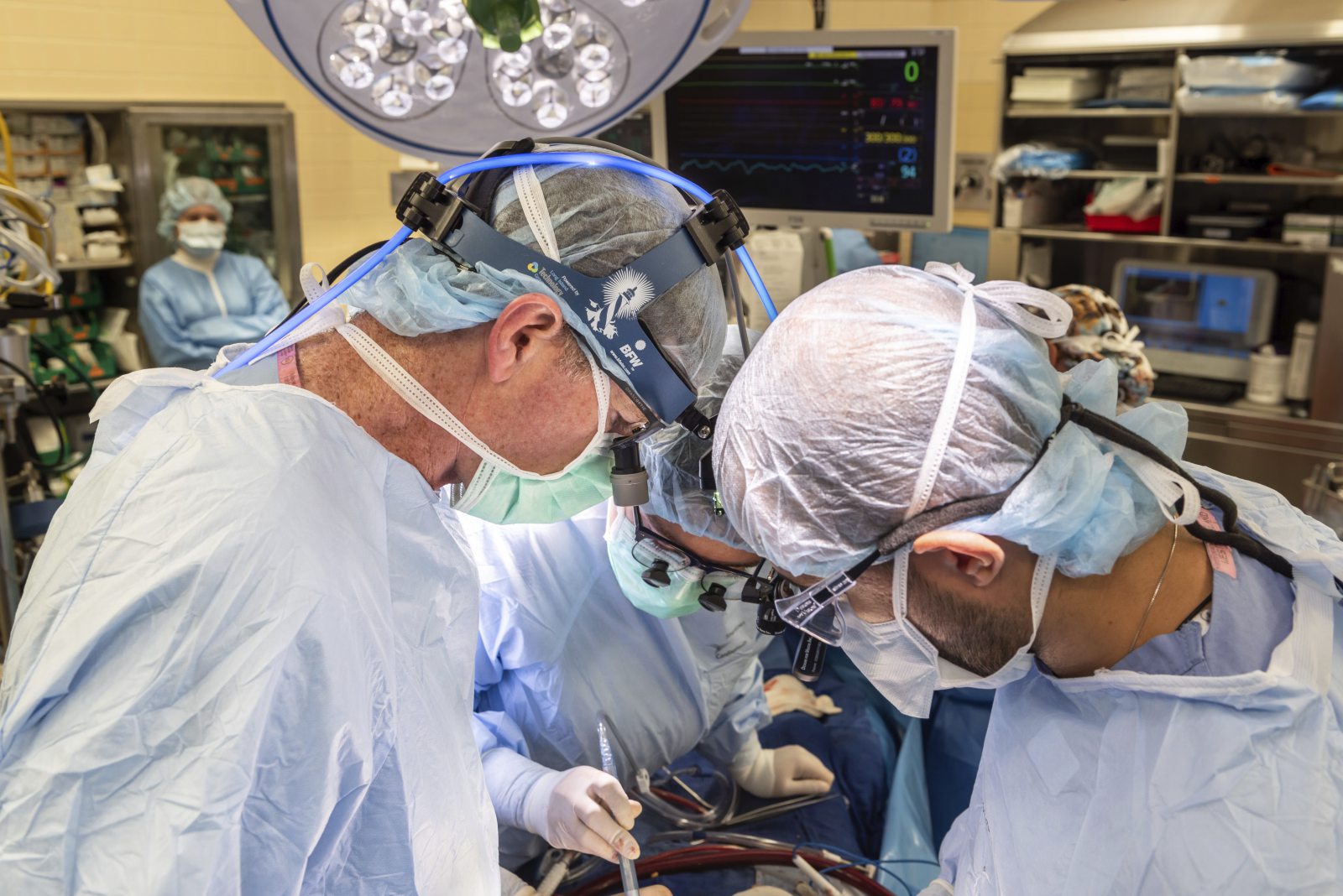
“We try to always take a vein from the leg because they are the largest,” Bailey said. “When people think of open-heart surgery, they think of something urgent, which it is, but there is a lot of screening and stabilization done beforehand.”
There is also plenty of discussion with the patient, their family and other doctors.
“We really try to educate the patient and their family to not only help them make the best decision but to give the patient agency,” Bailey said. “We really keep the patient in the center of their decisions and wishes and then suggest what is best from there.”
Other procedures and treatments include pacemakers, stents and robotic cardiac surgery, which is done through small cuts in the chest with tiny robotic instruments.
Contrary to popular belief, a patient does not “die” during open-heart surgery, nor is the healing process lengthy, Bailey said.
“Because the heart stops, many people think you die, but your brain is still actively pumping oxygen throughout the entire body,” he said. “The patient will spend one night in the ICU (intensive care unit) and will be eating and walking that night or next morning. Then the patient typically leaves the hospital within four days and has about a month of no heavy lifting or driving.”
When the heart stops, the patient is placed on a blood-lung machine, which helps the patient breathe and keeps blood flowing through the heart. Samples of blood are taken throughout the procedure to measure blood-oxygen levels and check for infection. Blood is also taken from the patient beforehand and kept on a machine to prevent clotting throughout the procedure in case the patient needs more blood.
“Another thing people think is that open heart is a messy surgery … there is not much blood lost at all,” Bailey said. “It is a fairly clean procedure start to finish.”
Beforehand, the patient is wiped down from head to toe with iodine to be sterile and has a catheter inserted for urination, anesthesia through their chest and a ventilator through their throat.
Bailey said the most invasive part of the surgery is breaking the heart bone, which is the part that takes the longest to heal. An open-heart surgery patient will have yearly check-ups for the rest of their life, and it is “crucial,” Bailey said, that they take secondary prevention measures such as controlling their blood pressure, being active and eating healthy.
“Another important thing is connecting socially, whether with friends, family, whoever,” Bailey said. “Having a healthy mind helps you in all other aspects.”
The first open-heart surgery was performed in 1955.
“This operation is still relatively new; we are still learning and finding new and better methods,” Bailey said.
Part of that is through Allegheny Health Network’s Open Heart Surgery Observation Program.
Created in 2008, it allows students to observe procedures and learn more about the biology, chemistry and physics of medicine. More than 22,000 students from nearly 150 schools have participated.
— Story by Erin Yudt and Asha Blake
Thousands of eager baseball fans flood North Shore parking lots as the sun peaks through the clouds on this early morning.
The scene is buzzing.
Fans under a bridge overpass play cornhole and throw back drinks. Merchandise sellers neatly organize their displays. Diehard fans seek out tickets.
“(Merchandise vendors and fans) have become so close,” said Mike Andrews of Brentwood, a vendor for more than 20 years. “It is kind of cool, and it just great to talk with fans, see where they’re from and just come together for our love of sports.”
Andrews said his stand, which he also operates during Steelers, Penguins and Pitt football games, started as a second income. Now it’s his retirement job.
Fellow vendor Mark Crosby said he also started his business as a side hustle.
“I never thought I would be doing this 20 years later,” Crosby said. “But it’s really cool to see the artists from Stage AE pop up. … I think Chris Pratt is the biggest star we’ve seen.”
Whether it’s a longtime vendor, diehard Pirates fan or someone visiting Pittsburgh for the first time, there is always something to see at the North Shore tailgates.
Laura Pawlik of Pittsburgh joined 250 UPMC finance co-workers at the company’s tailgate — the first outside-the-office event since the pandemic, she said.
“It is great to get out of the office and relax,” Pawlik said, dodging a bean bag from a game of cornhole behind her. “The parking attendants have been pretty cool, and it’s great trying everyone’s food.”
— Story by Erin Yudt and Zachary Gibson
Dan Berg calls it “braille diving” — when underwater visibility is so low that you might as well be blindfolded.
These conditions can pose a challenge for Pittsburgh River Rescue divers as they scour the riverbed for criminal evidence or scramble to rescue someone.
Visibility was near zero in the Allegheny River on this particular Friday afternoon as Berg — call sign Rocket Man — and another diver were completing annual training dives.
Public safety diving is a risky business.
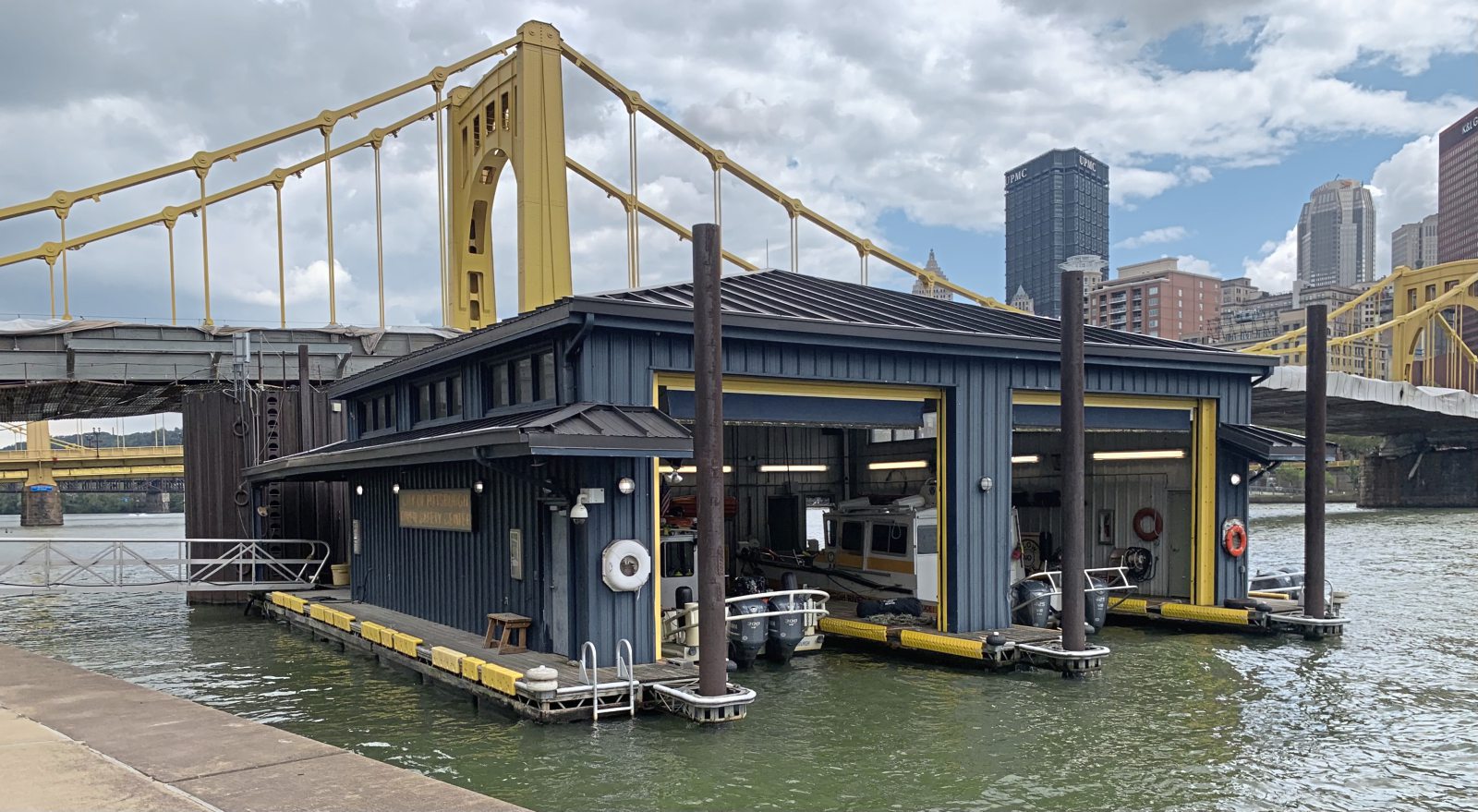
The average depth of the city’s rivers is about 20 feet, with currents between 0.3 and 0.7 mph most summer days. At 1.5 mph, divers can get “tossed like a pebble,” Berg said.
While one diver practiced search patterns, the other remained on the boat in roughly 90 pounds of diving gear in case of emergency. River Rescue Operations Chief Richard Linn supervised as a police officer communicated with the diver and monitored his breathing.
“You get to be very trustworthy of the people you work with,” Berg said. “You have to.”
The unit consists of 15 divers who work half the year with River Rescue, spending the other half as regular paramedics. Five more divers are in the pipeline, undergoing 700 hours of training, including an exercise in which they await rescue after depleting their oxygen tanks.
Divers-in-training must learn that help will always come — and to remain calm, Berg said.
“Our safety record is,” Berg said, pausing to knock on the wooden dock, “unparalleled.”
— Story by Jack Troy
It’s Elvis Bingo night at Bottlerocket Social Hall, an Allentown bar nestled in the Pittsburgh neighborhood’s steep hills.
“We have a lot of weird ideas at the bar, but this may be one of our weirdest,” owner Chris Copen said. “Ladies and gentlemen … ELVIS!”
Sporting a skin-tight, white jumpsuit and black wig, Jamie Harris, 53, made his way to the stage. As soon as he starts to sing, the audience, ranging from 9 to 78 years old, knew this Elvis impersonator is no joke. Harris has been in the business for 23 years.
“If I had a nickel for every time I’ve sung ‘Suspicious Minds,’ I’d be a millionaire,” he said.
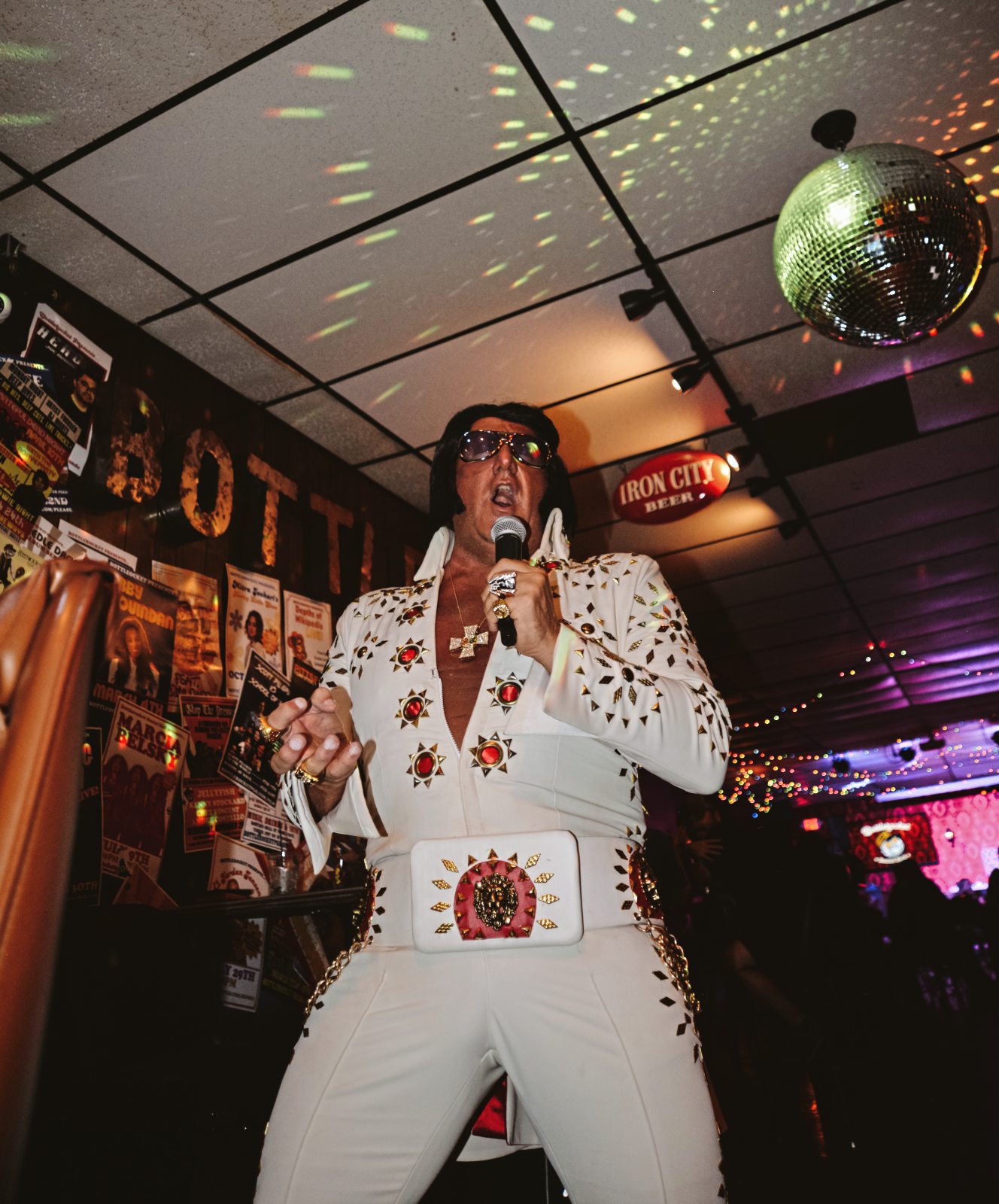
In addition to serenading the crowd, the Harris hosted bingo night. Patrons sat on the edge of their seats, colored daubers in hand, as Harris called the numbers.
The one kink in the Elvis Bingo plan was Harris’ thick Elvis-style southern drawl, which occasionally made it difficult for patrons to hear their bingo numbers.
When Copen asked Harris to speak a little clearer, Harris responded just as Elvis may have: “I’m trying to eat a hot dog and play bingo, son, give me a break.”
In just a year and a half, Bottlerocket has established a foothold as an entertainment venue in Pittsburgh. Elvis Bingo night was no different. The small bar was packed as the audience roared with laughter and competitive cheer.
“I’m appreciative that so many people think our dumb ideas are as fun as we do,” Copen said.
Daniel McElhaney drove in from Youngstown, Ohio, for the event, bringing along his 78-year-old mother.
“She didn’t know what we were coming to,” he said. “I told her it was a show in a bar in Pittsburgh — that’s it.”
Next thing Jo McElhaney knew, Elvis was thrusting his bedazzled hips and placing a signature scarf around her neck.
“I took notice of Bottlerocket Social Hall because they’re eccentric,” Daniel McElhaney said. “Like me!”
— Story by Anna Mares
In the 1990s, being a female tattoo artist was practically unheard of in Pennsylvania.
Now, Veronica Delaney, owner of South Side Tattoo & Body Piercing on East Carson Street, is one of the most accomplished tattoo artists in Pittsburgh.
Before owning a tattoo shop, Delaney worked full time for the IRS while juggling the responsibility of being a single mother of three children.
To support her children, Delaney took a second job at her brother’s tattoo shop. In 1995, she learned how to tattoo on her own.

Delaney trained with an artist in Mt. Lebanon, who helped her hone the drawing skills she already possessed. She practiced tattooing on the outer skin of honeydews and made her own needles by hand.
A year later, her brother suggested she do her own thing.
Delaney has owned South Side Tattoo & Body Piercing for 26 years and has created a booming business that draws first-timers and repeat customers alike.
Delaney said that when someone walks in, it is South Side Tattoo’s job to create a memorable experience.
“Our goal is to make you happy,” she said. “I’ve had clients that I’ve known for 27-plus years.”
She said she is proud that she often receives wedding invitations from customers. She said she’ll find customers’ children come in for tattoos years after their parents had gotten one.
“We love our customers, and I think that that’s a reflection of everything that we value,” Delaney said. “This will always forever be my baby.”
South Side Tattoo’s rates are $150 per hour. A deposit is required and taken off the final cost for first-time customers.
South Side Tattoo allows walk-in scheduling and appointments depending on the size of the tattoo.
— Story and photos by Haley Moreland
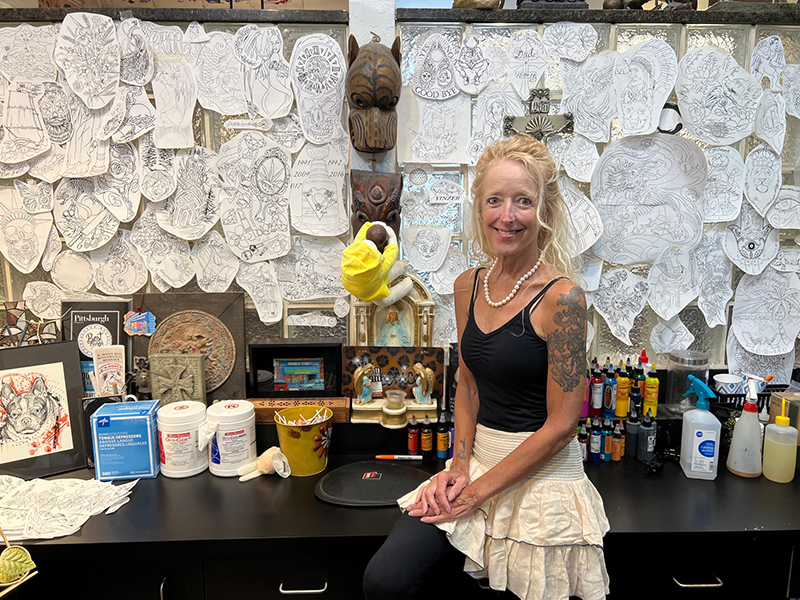
In the late 1990s, a group of musicians, artists and community leaders in Pittsburgh wanted a platform to celebrate and showcase Black music.
The result was the Pittsburgh Black Music Festival, and it continues to this day to celebrate Black culture and heritage through live music and vendors.
During a gospel music tribute performance July 14 at Point State Park in Downtown, audience members pulled out prepacked tambourines and enjoyed swaying and dancing to the beat.
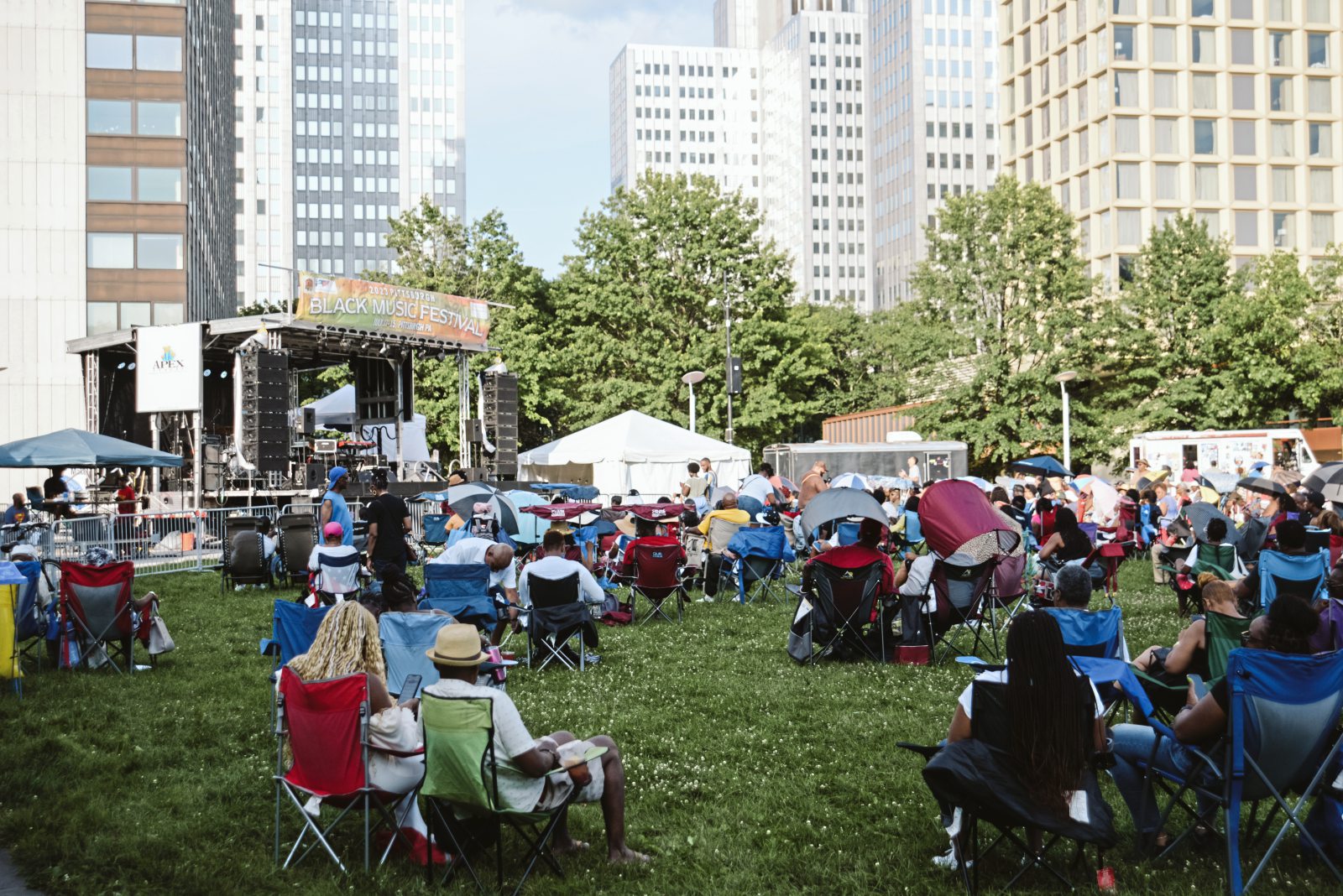
Stop The Violence Pittsburgh has run the festival for the past 10 years. The nonprofit strives to enrich the lives of African Americans in Pittsburgh and educate the community on African American heritage.
“It is a great multigenerational event for all communities,” said William Marshall, founder of Stop The Violence Pittsburgh. “We want to bring people together and celebrate the great Black music that built this city and the country.”
The festival ran from July 13 to 15 and included performances by Adam Hawley, Will Downing, The Blackbyrds, Dorinda Clark-Cole, Le’Andria Johnson, Karen Clark Sheard, Rose Royce, Chante Moore and Musiq Soulchild.
Black-owned businesses populated the vendor section, selling everything from artisan clothing to herbal blends and remedies.
Tyler Bowe, owner of TYLERB, grew up on the East Side and pairs a background in biology and ecology with her passion for herbal medicine.
Her decision to create the business was inspired by a personal health struggle.
“I was dealing with a lot of feminine issues that I couldn’t get rid of, and I was tired of the medication they were giving me,” she said.
She decided to use her background in science to find a solution.
“Let’s get back to the roots. Let’s get back to nature here,” she said.
A Family Affair food truck, a Black-owned family business, came from Charleston, W.Va., for the festival.
“Pittsburgh is just a great area for businesses,” co-owner Andra Rogers said, “not only in the Black community but for all.”
— Story by Erin Yudt, Anna Mares and Asha Blake
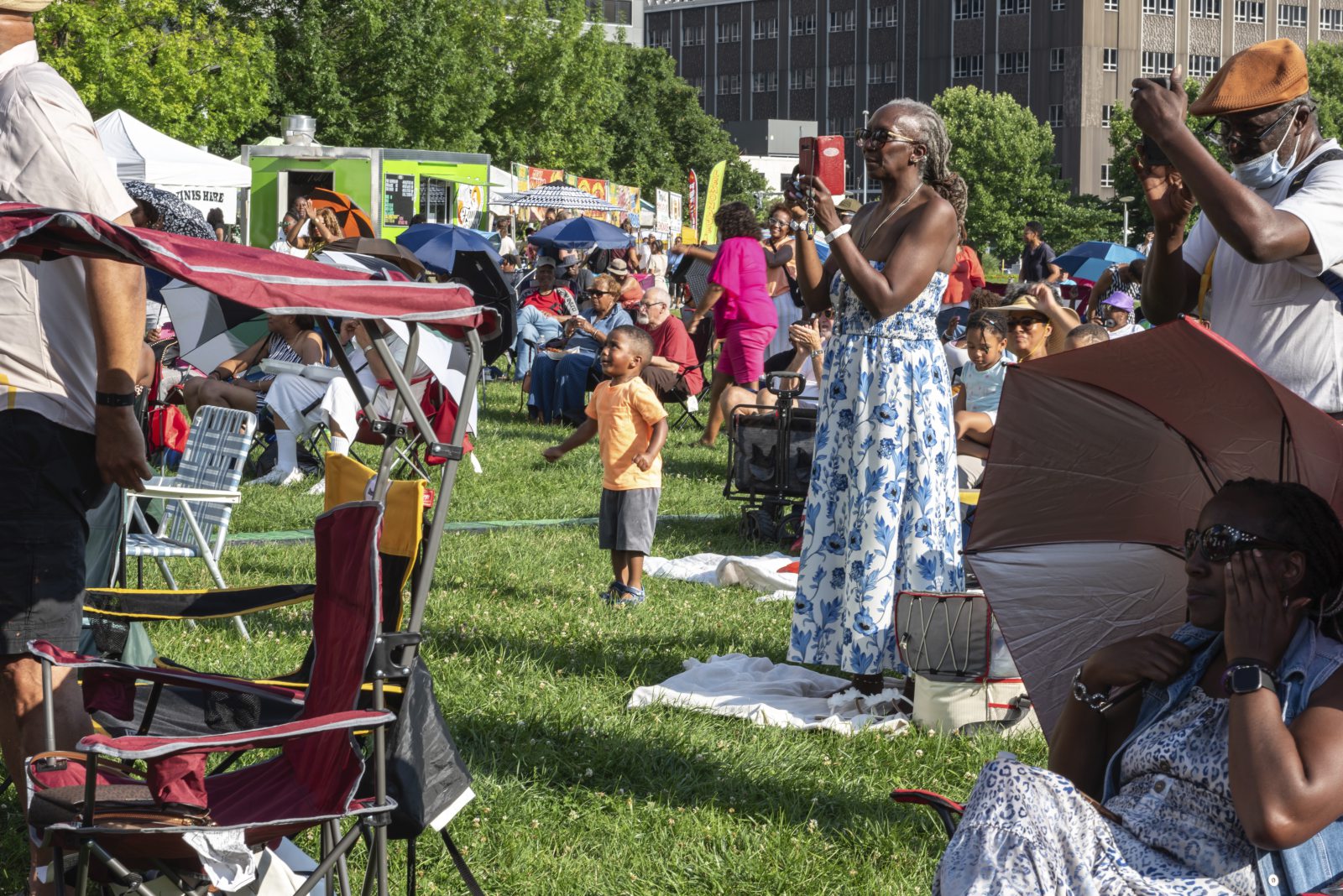
Paul Guarino found his passion for fitness through climbing.
Today, he and Ascend Climbing co-owners Alex Bernstein and Erin Gilmore have turned their love for bouldering into a booming business.
Ascend Climbing has grown to three locations — South Side, Point Breeze and Youngstown, Ohio. A fourth location will open soon in Erie.
“We’re excited to grow the business regionally,” said Guarino, Ascend’s marketing director and chief policy officer.
Guarino always had been a big skateboarder and snowboarder but felt like the “scrawny kid” until a friend asked him to go bouldering in 2007 during graduate school.
He bought a pair of climbing shoes and a gym membership the next day.
Ascend offers bouldering, yoga, gym equipment and slack lines. Its rock walls are suitable for novices and expert climbers alike, which is what makes climbing such a communal experience, Guarino said.
“It’s really cool that no matter what ability, you can all do it together,” he said.
Guarino said he met the majority of his friends through rock climbing and hopes customers have the same experience.
“We love being a part of the Pittsburgh community,” Guarino said. “I’ve been able to form my passion into a job.”
— Story and photo by Haley Moreland
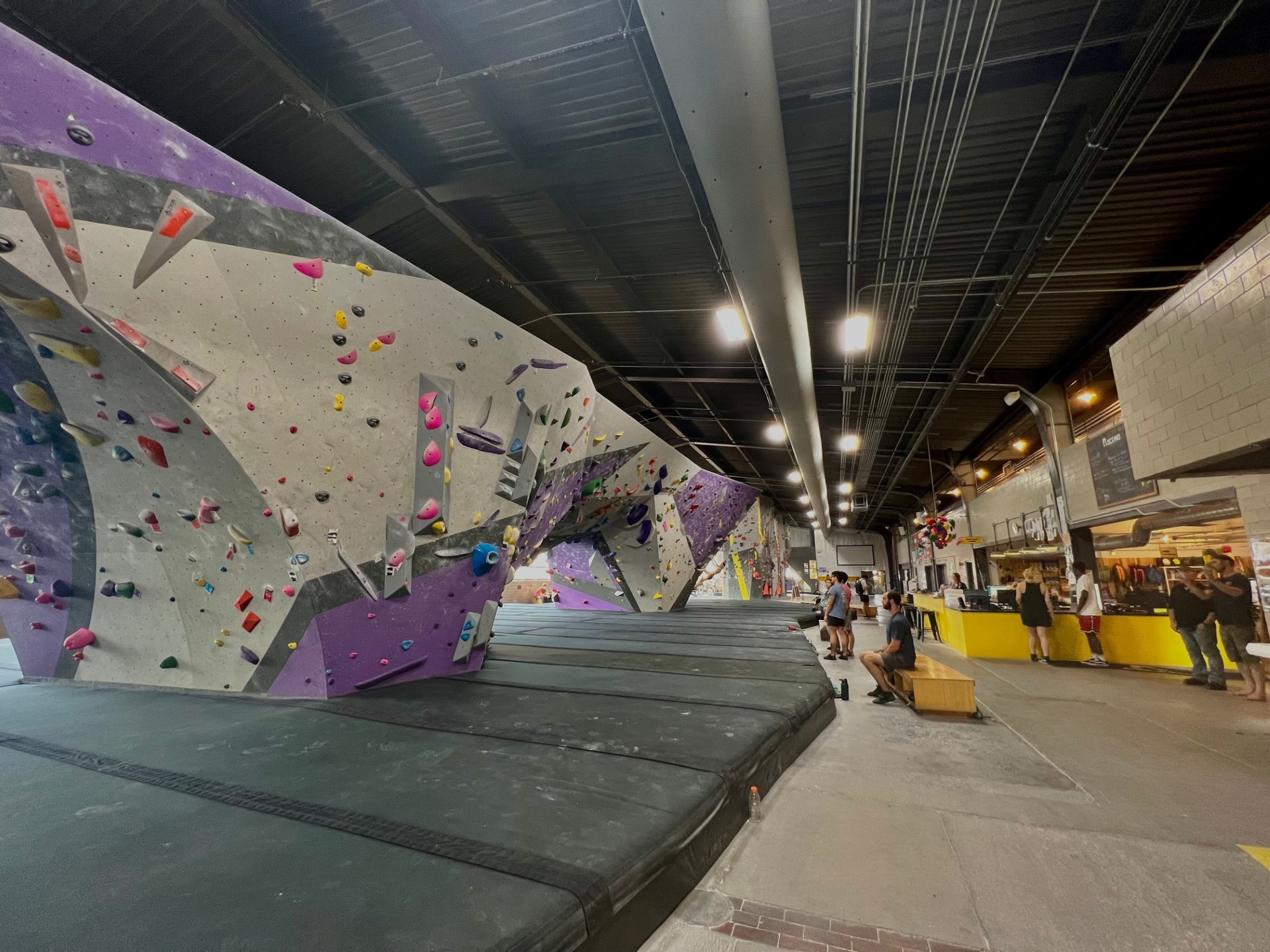
From the end of July to the end of October, Market Square comes alive through the weekly Night Market.
On a recent evening, a mother and daughter promoted their co-owned bookstore and two friends chatted about freshly squeezed juice while old buddies played chess.
Jack Dougherty, senior director of constituent services for the Pittsburgh Downtown Partnership, said he loves being a part of community development in Pittsburgh. Since he started as an intern 10 years ago, he’s worked to create more vibrant spaces in the city.
“It gives (visitors) the impression that Pittsburgh is full of vibrancy and health,” he said.
The Night Market brings an outdoor pop-up shopping market and festival to Downtown, hoping to draw Pittsburgh’s most creative independent vendors. Clothing, furniture, candles, food, drinks and more are exhibited.
Among this year’s rotation of 100 vendors is Greenfield bookstore Stories Like Me.
“These markets give us a chance to reach a wider audience outside of Greenfield and bring in new business,” co-owner Imogen Campbell said. “It is great to further spread our cause.”
Stories Like Me is a children’s and young adult bookstore with a diverse collection that encourages children to see themselves in a story. Campbell envisions the store as a community hub promoting equality, equity and inclusion.
Health and wellness juicer Mercia Howard started selling at the markets this year. Her business is called Herb’n Nature, focusing on herb-based drinks to replace high-sugar drinks.
“It’s summertime. Everyone wants something sweet and refreshing, so we make it healthy while still being good,” Howard said. “(The Night Market) is perfect for us.”
The Night Market in Market Square takes place from 5 to 10 p.m. Fridays and Saturdays.
— Story by Erin Yudt and Anna Mares

On Penn Avenue in the heart of Pittsburgh is a vintage clothing store with old-school flair.
Senseless has been a Downtown staple for seven years. It gives a nod to 1990s and early 2000s hip-hop and sports culture with shirts, hats, shoes and jerseys.
Owner Rome Watson, who started the business with his brother, said what makes the store unique is “a mix of nostalgia with people who are into music and sports.”
“You look up on the walls and bring back memories,” he said.
The walls are adorned with album covers from the likes of Janet Jackson and Johnny Gill to Ice Cube and Ma$e. Elsewhere, sneakers are neatly organized along a wall.
Although everyone is welcome, Watson said some particular customers have taken note of the store.
“Well sell to anyone,” he said, “but the stuff we sell is higher-end vintage so we get like Steelers and other celebrities.”
Asked what prompted him and his brother to open a vintage clothing store, Watson said his upbringing played a big part.
“Just growing up around our parents, just (being) into like hip-hop stuff and sports,” he said, “so we just grew up on it and loved it since kids.”
— Story and photo by Dinari Clacks
